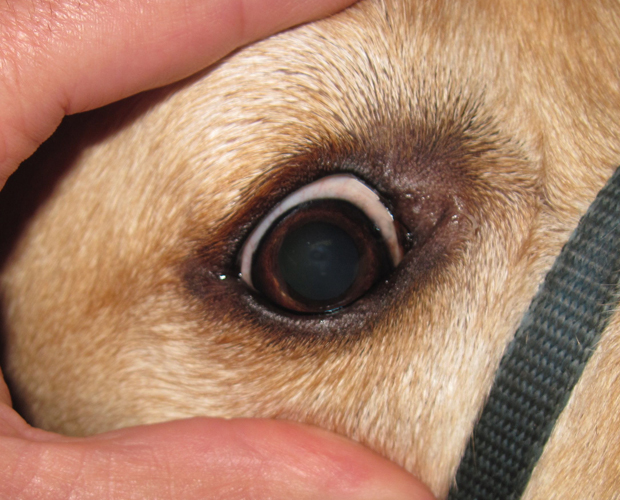
Photo by Doom.Ko.
Note: I asked Dr. Palazzolo to write about his professional knowledge of and feelings about veterinary marijuana use. He has done so responsibly and both expects and welcomes controversy as well as comments and questions. No gage on whether there will be research about it in the near future. Kate Karp
With the recent passage of marijuana laws in many states, including California, there are questions about the herb’s use in animals, particularly dogs. There is tremendous anecdotal evidence that the active ingredient (THC) in marijuana is of medical value in alleviating many maladies in humans. However, some of these same people extrapolate their experience to assume that it will be equally advantageous to animals.
This is not necessarily true. Accepting anecdotal evidence either in people or animals is not how we operate medically. Innate human bias and the placebo effect put anecdotal evidence at the bottom of our criteria for whether a medication works and does so without harmful effects. For this reason, it is irresponsible and inhumane to give marijuana to your ailing pet.
Since our federal government classifies marijuana as a Schedule 1 controlled substance with no accepted medical use and a high potential for abuse, there has been no bona fide research to back up the anecdotal beneficial claims of marijuana. Because of this, there has been no research on the use of marijuana in animal diseases, and it is unlikely that there will be any in the near future.
Even though marijuana is now legal for recreational use in California for people and physicians are exempt from prosecution, veterinarians in this state are not exempt. In addition, veterinarians have federal drug licenses under the ultimate authority of the DEA. The DEA does not recognize the legality of marijuana, and they do not recognize state laws. As a result, any veterinarian in the country that prescribes marijuana to an animal will lose his or her license to prescribe controlled substances and will probably be prosecuted under federal law.

Dogs that have noshed on the herb in any form need to be rushed to the vet—immediately. Photo by Monica Click.
Our biggest problem at LBAH is toxicity from dogs that have ingested marijuana. This has been a concern to us for many years and might increase in frequency if more people start using marijuana in their homes now that it is legal to do so. In most cases, the dog has eaten the remains of marijuana cigarettes or bogarted someone’s stash. And of course, the increasingly popular edibles can be irresistible to most dogs, and this could be a doubly bad trip for a dog if the goodies contain chocolate, which can be fatal to canines.
Typical signs at home that might indicate your dog ate marijuana:
- Incoordination
- Lethargy
- Depression
- Seeming comatose
- Vomiting
- Drooling
- Dilated pupils
- Barking as if hallucinating
- Exaggerated response to stimulation
- Urinary incontinence or dribbling urine
- Seizures

A dilated pupil could be the result of marijuana ingestion. Photo courtesy of LBAH
It must be understood that these are the symptoms of many other diseases. If your dog is displaying any of them, a visit to the vet is in order. If you are not sure that your pet ate some of your marijuana, only an exam by a veterinarian can make the distinction. An exam may demonstrate a low body temperature, an abnormal heart rate or neurologic deficits.
There is no antidote for marijuana ingestion. If you see your dog eat some, immediately give it an oral dose of hydrogen peroxide, which acts as an emetic and should be in your first-aid kit already. Use one or two teaspoons for a 40 to 50 pound animal; use less for smaller dogs and more for larger ones. Don’t force your dog to swallow the hydrogen peroxide. This does not always work, and you may be uncomfortable administering the hydrogen peroxide; whichever the case, call your vet immediately so they know you are coming. Then, bring your pet in right away.
At LBAH, if the ingestion has been within 30 minutes, we give medication to make your pet vomit and institute intravenous (IV) fluids immediately. This will help the internal organs metabolize the marijuana faster.
We will also keep a close watch on other important physiologic parameters like blood pressure, body temperature and heart rate, and treat them accordingly. We will also treat for seizures, which could appear at any time. Sometimes, a dog will have such severe respiratory depression that we’ll need to intubate and ventilate, but that’s been a rare occurrence at our hospital.
Some dogs take several days to recover with our treatment. If brought in immediately after ingestion, most dogs will survive, although you may want to keep dog treats at hand for any major case of the munchies when they recover!

